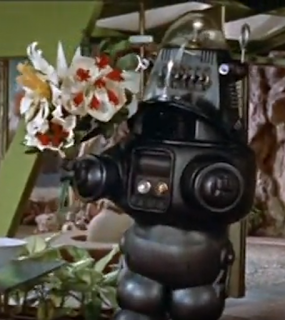This Island Earth (1 Point)

First thing’s first: Cal Meacham’s voice is insanely deep. It has to be all ADR, right? Because like…Jesus Christ. Anyways, I hate to go full Undiagnosed-ADHD-Zoomer in this post, but I found This Island Earth kind of boring until the last half hour. I wanted to like this one, I really did, but I just couldn’t really get into it until they left Earth. I do love the film on an aesthetic level though. I’ve always been a sucker for clean retro sci-fi props and sets, and this movie delivers on that front. The interocitor’s design is great in its simplicity (although it’s kind of funny with hindsight that it’s essentially a big cell phone), and I appreciate how it explains how the gravity in their spaceship works. The Metaluna set has some really cool architecture and its limitations (by today’s standards) are charming. I really l...
